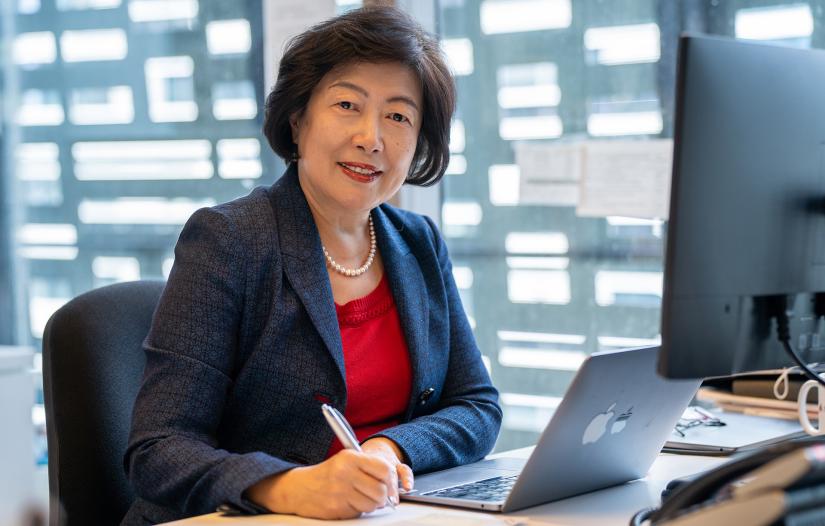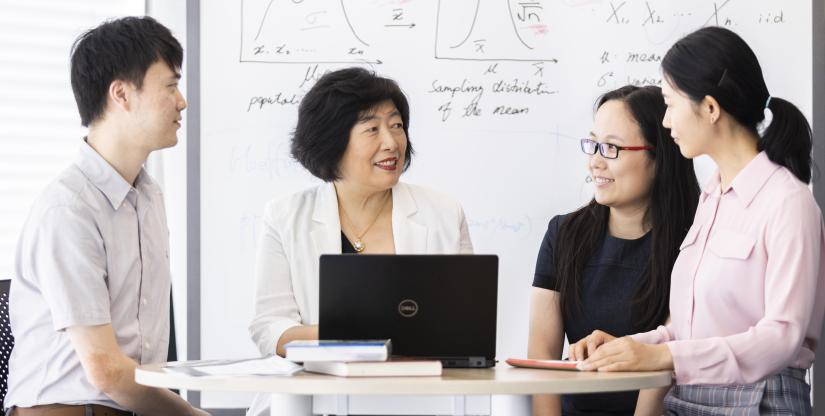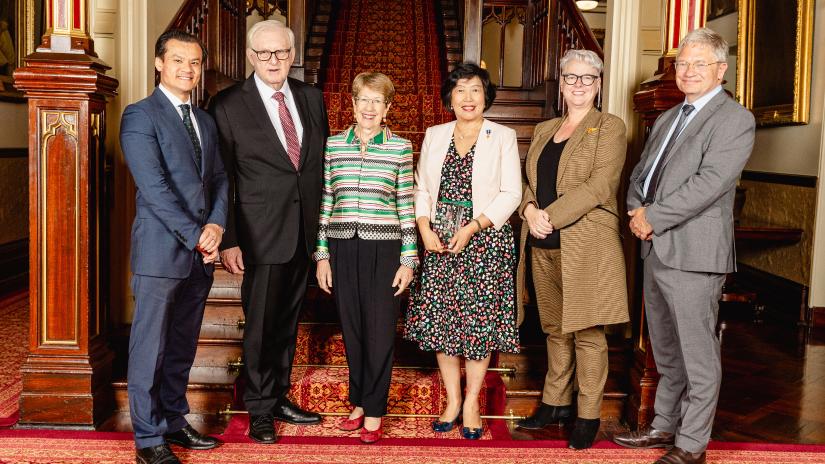From transport and health through to agriculture, Distinguished Professor Jie Lu’s pioneering artificial intelligence (AI) is improving decision-making across a range of Australian industries. Her ground-breaking theoretical and problem-solving research has earned her a NSW Premier’s Prize for Excellence.

Whenever you catch a Sydney train, you’ll see a helpful indicator on the station platform telling you whether an approaching carriage is likely to be empty (green) or full (red).
For someone seeking to socially distance, or just get a seat during peak hour, seeing a green light on a carriage can be a lifesaver.
While it may seem simple, the technology behind it is anything but. It’s driven by advanced machine learning in complex multi-source data streams, which predicts what’s happening in real-time.
The high-impact AI technology behind it, deployed by Sydney Trains, was developed by UTS Distinguished Professor Jie Lu and her team.
They have been exploring how to better train AI models under “uncertainty” where there’s limited information to work off and in data streams where there’s a high volume of data.
“We work on advanced machine learning algorithms when you don’t have enough labelled data to train a model or when the data you have has different types of uncertainties."
Distinguished Professor Jie Lu
“My solution involves what we call ‘fuzzy’ machine learning – how we transfer knowledge across from one or more situations to another to fill in the gaps for training the learning model in highly dynamic situations.”
“We’ve significantly improved the accuracy of machine learning models in complex situations using these techniques and done so in a responsible, privacy protection, and ethical way,” she explains.
AI modelling for better health prediction
Professor Lu also recently worked with healthcare start-up 23Strands to explore new AI applications for personalised medicine.
In particular, they have been studying the potential genetic variations that are associated with a higher risk of conditions such as strokes, and developing a model that predicts the risk of having stroke.
“We are using our fuzzy machine learning techniques and personalised recommendation methods to offer a significantly improved service and solution of human genome analysis and better prediction of health characteristics, while at the same time ensuring robust privacy measures were in place.” she says.
Work such as this has earned Professor Lu a slew of national and global awards. Just in the last 12 months, she has been made Officer of the Order of Australia (AO), received an Australasian AI Distinguished Research Contribution award, and been recognised with an Outstanding Paper Award on her fuzzy transfer learning research by the global Institute of Electrical and Electronics Engineers.
Now she has been awarded a NSW Premier’s Prize for Excellence in Engineering or Information and Communication Technology at a ceremony held in Sydney.

Professor Lu and her team develop machine learning with too much or too little data. Photo Andy Roberts
Improving decisions in an iconic industry
Professor Lu also has ground-breaking research on the problem of how AI can support complex decision-making with large volumes of constantly-changing information.
She can see the potential application of these models in another iconic Australian industry – agriculture.
“A lot of farmers are now capturing vast streams of data from their properties using a wide range of different sensors and instruments,” she says.
“Their data is not always well used, often it’s not even well labelled. In talking with our partners, we know they need better tools to help them bring this data together to support their predictions, well-being, and decision-making.”
“Our capabilities in transfer learning could provide solutions for agriculture such as better prediction of insect pests or grass fires when the related data has insufficient labelling.”
Whatever the problem or industry area, Professor Lu is working to help people make better decisions regardless of whether they have too little, or too much, information.

The 2023 Premier's Prize for Science & Engineering Award Ceremony (L to R): the Hon Anoulack Chanthivong MP, Minister for Innovation, Science and Technology, Mr Dennis Wilson, Her Excellency the Hon Margaret Beazley AC KC, Governor of NSW, Distinguished Professor Jie Lu AO, the Hon Penny Sharpe MLC, Minister for Climate Change, Energy, the Environment and Heritage, Professor Hugh Durrant-Whyte, NSW Chief Scientist & Engineer.

